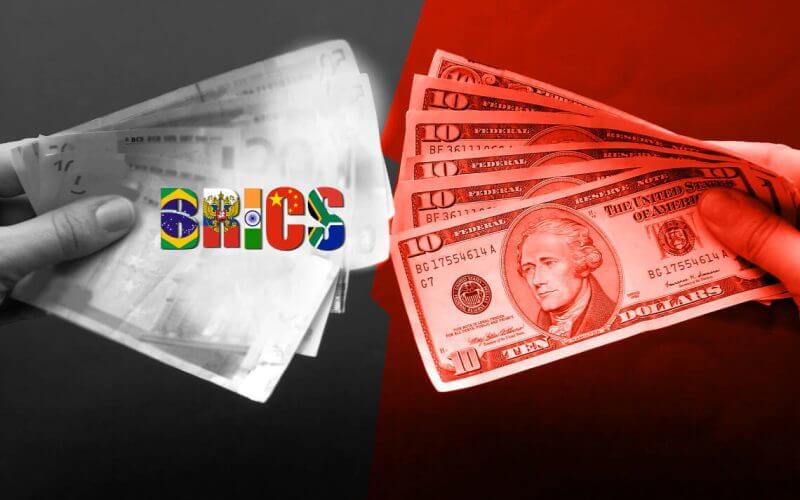Brazil, Russia, India, China, and South Africa, the nations that comprise the BRICS block, are actively working to develop a new payment system to end reliance on the United States dollar, Russian diplomat Roman Babushkin confirmed, ahead of the 15th annual BRICS conference that is set to meet in Johannesburg next week.
The new payment system would use local currencies for cross-border transactions and mutual settlement among the organization's members, according to Babushkin.
The Russian Foreign Minister also pushed back against statements made by Brazilian President Lula about forming a new BRICS currency to challenge the U.S. dollar. Babushkin said creating a new currency involves a lot of work, which the organization is unprepared for.
"A BRICS payment instrument based on the currency basket would help to carry out mutual settlements without any reliance on the U.S. dollar," Babushkin told reporters.
"These ideas demonstrate new tendencies; however, it is clear that a lot of aspects require in-depth study," he added.
According to the Russian diplomat, the new payment system will allow BRICS to "free" itself from the U.S. dollar and end its reliance on it, however there are still challenges that stand in the way of the nations becoming definitively independent of U.S. currency.
"With over one-third of the world's GDP, a total population of around 3 billion people, and a strong desire of other states to join its activities, it is safe to say that BRICS has become an integral element of an evolving multipolar paradigm,” he said, and while the BRICS nation comprise 40% of the world population and 26% of the global economy, the countries could potentially use their new currency to trade with partner nations, but they’d still have to use the dollar to trade with the rest of the world.
Experts to expect a ripple effect if the BRICS nations do in fact come up with a new currency to rival the West. Each nation, a heavy weight in its own region, will draw interest by neighboring nations.
Forty-four nations have already expressed interest in joining BRICS, and 22 formal applications have already been received by places like Saudi Arabia, Iran, Argentina, Egypt and the UAE. Saudi, Argentina and UAE are rumored to be the frontrunners when more nations are accepted.
Russian President Vladimir Putin confirmed rumors of a new currency days ago that the BRICS intends to begin work to create an "international reserve currency."
Moscow's latest announcement comes as its ally, China has called on members to support its Belt Road Initiative and Global Development Initiative, which is an effort topple the U.S. dollar and spread anti-U.S. activism among the organization.
Moscow and Russia are trying to quickly expand the organization and strengthen their influence to sway developing countries like India, which also want to get closer to Beijing's economy but want to remain in the good graces of the West.
As Russia is currently facing the impact of economic sanctions following its invasion of Ukraine last year, South Africa's finance minister told Reuters that the New Development Bank (NDB) set up by the BRICS needs to increase its local currency fundraising and lending.
According to reports, China is the NDB's most successful local currency market, issuing 13 billion Yuan ($1.8 billion) across three "panda bonds" last year, with more than half of its lending in Yuan.
But at the same time, 85% of global trade uses the U.S. dollar, as compared to only 4.5% for the Chinese Yuan.
Related Story: Lisa Daftari on Fox Business with Charles Payne: BRICS competition for global currency









